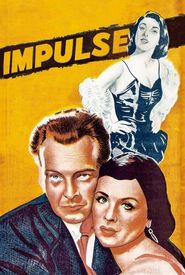Constance Smith, a strikingly attractive Irish actress, was born into a struggling family in Limerick. Her tumultuous life and career, marked by controversy, tragedy, and ultimately, decline, is a cautionary tale of a promising star whose life was marred by personal struggles and poor decisions.
Constance's rise to fame began in 1946 when she won a look-alike competition in a Dublin movie magazine, earning her the title of Hedy Lamarr doppelganger. This led to a successful screen test with the Rank Organisation, and she was subsequently groomed by the "charm school" to prepare her for stardom. However, her fiery temperament and unwillingness to conform to the industry's expectations led to her swift dismissal.
Undeterred, Constance moved to London, where she appeared in supporting roles in several British films, including a small part as a maid in The Mudlark (1950). Her performance caught the attention of Hollywood, and she was signed to a contract with 20th Century Fox, complete with much fanfare and publicity.
Despite her promising start, Constance's career was marked by controversy and conflict. She clashed with producers and executives, refusing to change her surname from "Smith" to something more marketable. She also alleged being the victim of casting couch politics, an assertion that is not entirely implausible given her stunning looks and the fact that Darryl F. Zanuck was Fox's head of production at the time.
Constance's time in the spotlight was brief, and she was soon relegated to a string of B-movies, including Red Skies of Montana (1952),Treasure of the Golden Condor (1953),and the thriller Man in the Attic (1953). Her personal life was also marked by turmoil, including an abortion forced upon her by the studio and the breakdown of her first marriage.
As the years went by, Constance's career continued to decline, and she became embroiled in a life of drugs and alcohol. Her final acting credits were in a pair of minor Italian films between 1955 and 1959, including a role as Lucretia Borgia in Conspiracy of the Borgias (1959). None of these roles helped to revive her flagging career, and she eventually attempted suicide by overdosing on barbiturates.
Constance's life continued to spiral downward, marked by multiple suicide attempts, including two brief prison sentences for attempting to stab her partner, documentary filmmaker and film historian Paul Rotha. Her final years were spent in and out of hospitals, and she died in obscurity as an alcoholic on a street in Islington, London. As Irish author and blogger Sharon Slater noted, "a sadder end is hard to imagine."








































